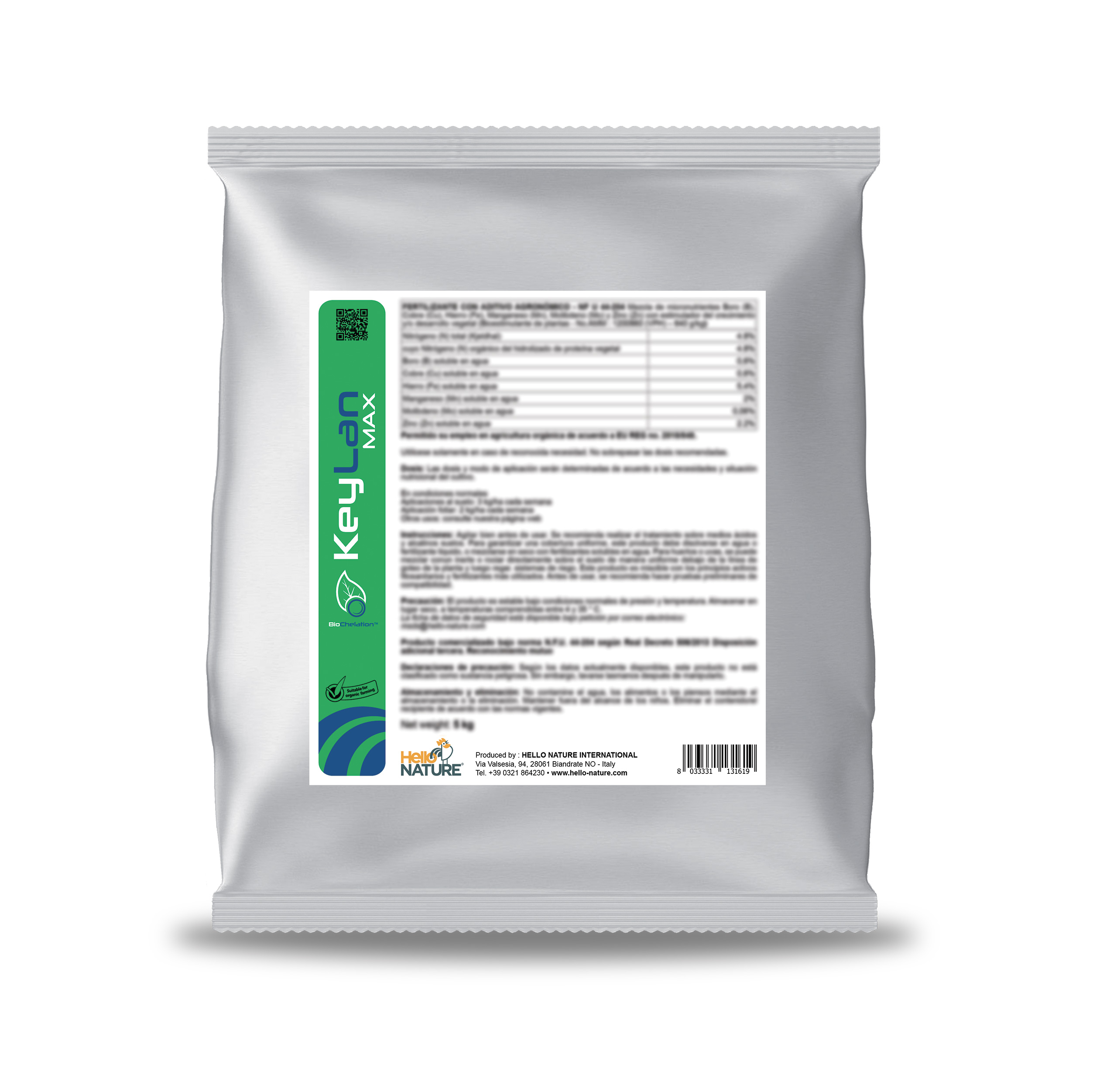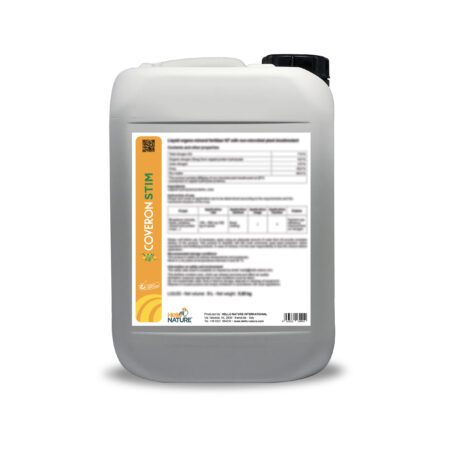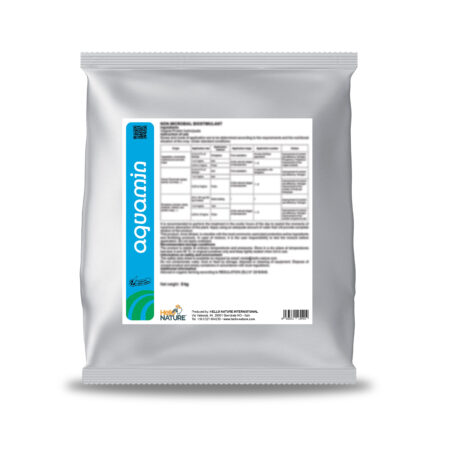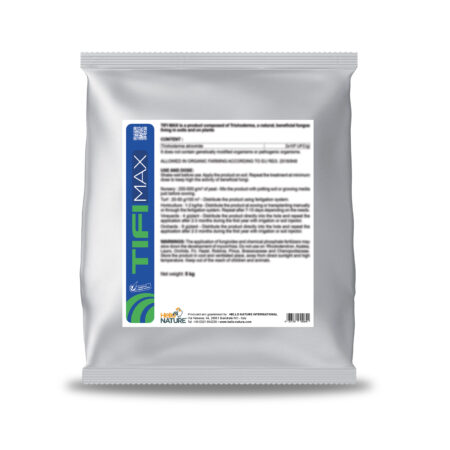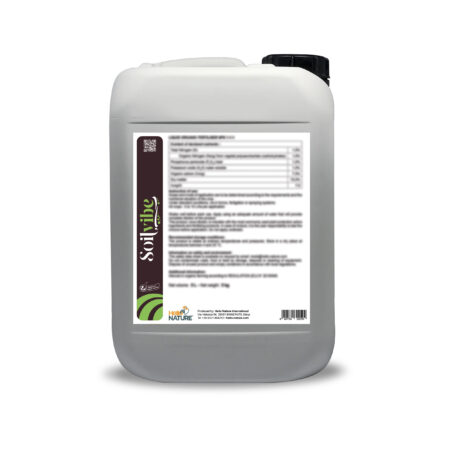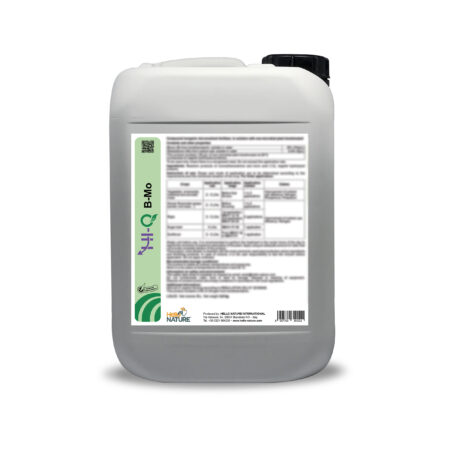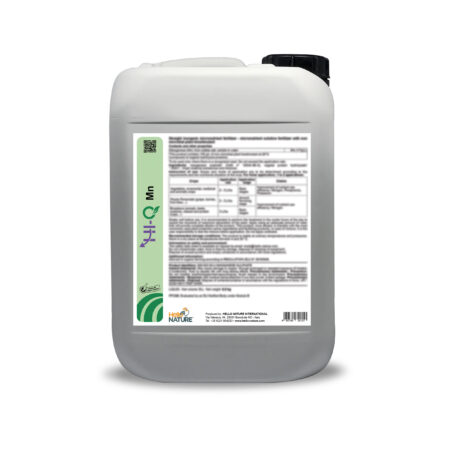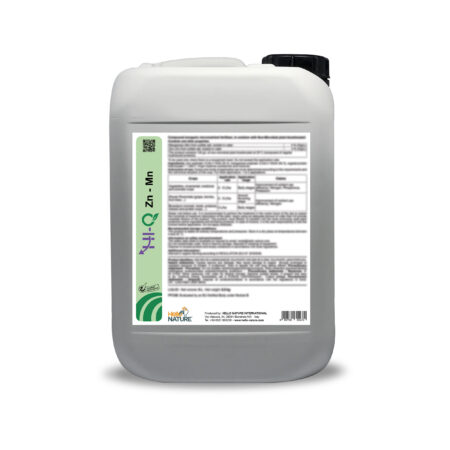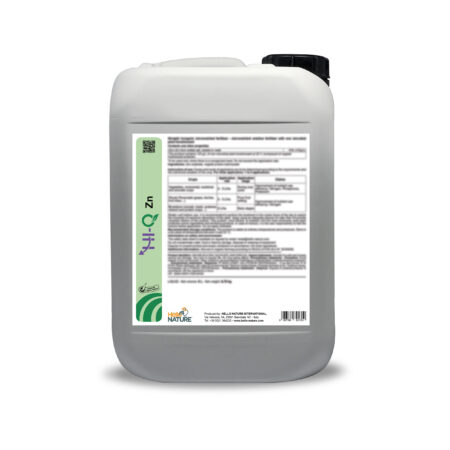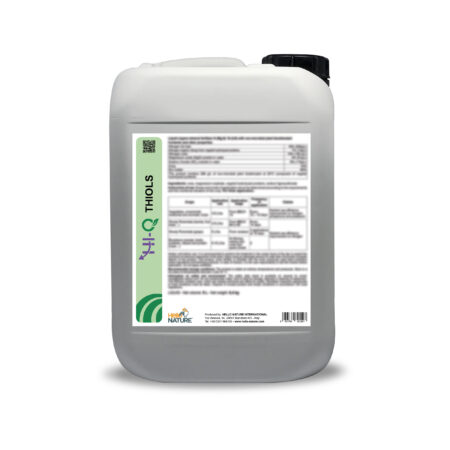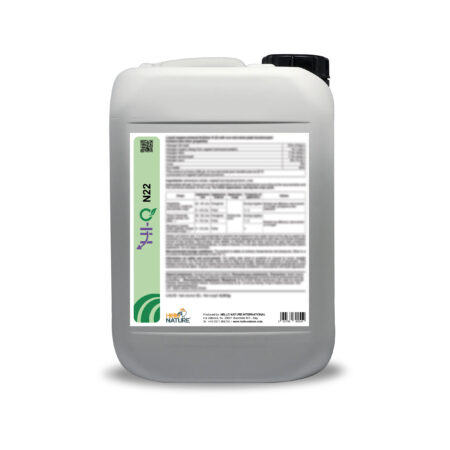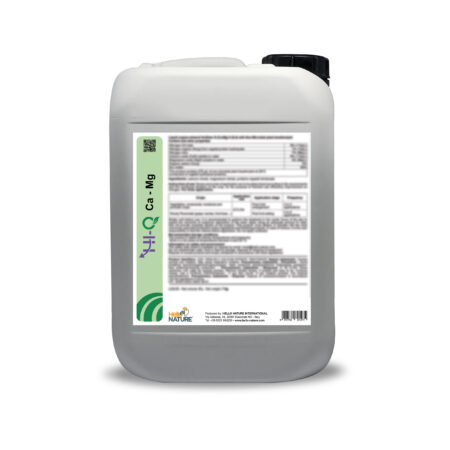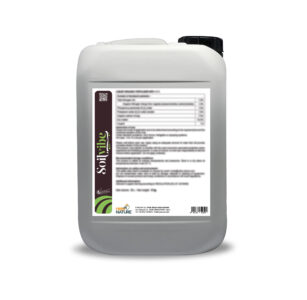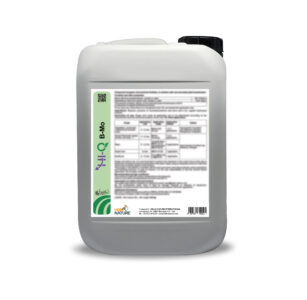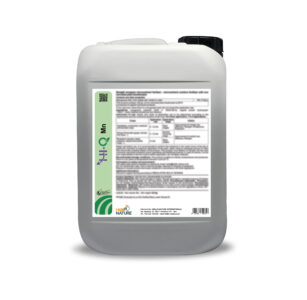Keylan range of products is designed for the application through drip irrigation, soil injector or foliar. It is also suitable for crops grown in hydroponic conditions. Dosage and frequency listed are general guidelines. For specific recommendations, contact one of our authorized representatives.
In average conditions:
SOIL APPLICATION: 3 kg/ha every week
FOLIAR APPLICATION: 2 kg/ha every week
Industries: Row crop growers, Greenhouse, Nursery, Landscape, Specialty Crops, Horticultural, Blenders (Technical Ingredient), Hydroponic (soil-less), medicinal plants, Hemp
Vegetal protein hydrolysates
HELLO NATURE ’s Vegetal Protein Hydrolysate products are made exclusively from the highest quality, non-GMO vegetal sources and are guaranteed to contain no animal by-products. They are produced using a proprietary Enzymatic Hydrolysis process. They naturally contain organic nitrogen, organic carbon and Plant Stimulating Peptides.
Plant Stimulating Peptides (PSP)
The result of our exclusive Enzymatic Hydrolysis process. This pool of selected peptides has a prominent, assured, and natural biostimulant effect to improve nutrient uptake and mitigate the effects of abiotic stress. PSP also have the intrinsic ability to effectively biochelate elements: they behave like synthetic chelates forming different types of bonds with positively charged metal atoms.
Biochelated Iron
Iron in a biochelated form is readily and easily available for plant’s use. Its uptake is optimized by the presence of Plant Stimulating Peptides. Iron (Fe) is a critical element for the whole metabolism of plants, being crucial for metabolic processes such as respiration and photosynthesis as well as for biosynthesis of fundamental molecules like chlorophyll. It is also essential for nitrogen and sulfur assimilation.
Biochelated Manganese
Manganese in a biochelated form is readily and easily available for plant’s use. Its uptake is optimized by the presence of Plant Stimulating Peptides. Manganese (Mn) has primarily functions as part of the plant enzyme system, activating several metabolic functions. Mn is essential for photosynthesis metabolism. It affects nutritional quality, strength, and stiffness of plant tissues, being involved in the synthesis of valuable components such as ascorbic acid (vitamin C) and lignin.
Biochelated Zinc
Zinc in a biochelated form is readily and easily available for plant’s use. Its uptake is optimized by the presence of Plant Stimulating Peptides.
Zinc (Zn) is a key component of many proteins and enzymes. It is used in the formation of chlorophyll and some carbohydrates, conversion of starches to sugars and its presence in plant tissue helps the plant to withstand cold temperatures. Zn contributes to growth hormone production and stem elongation.
Biochelated Copper
Copper in a biochelated form is readily and easily available for plant’s use. Its uptake is optimized by the presence of Plant Stimulating Peptides. Copper (Cu) is essential in several plant enzymes with several properties and functions. Cu is necessary for chlorophyll formation, and it also has a primary role in carbohydrate and protein metabolism.
BORON (B)
Boron (B) is used with calcium in cell wall synthesis and is essential for cell division (creating new plant cells). B requirements are much higher for reproductive growth, so it helps with pollination, and fruit and seed development. Other functions include translocation of sugars and carbohydrates, nitrogen metabolism, regulation of hormone levels and transportation of potassium, which helps regulate internal water balance. Since B helps transport sugars, its deficiency can reduce the attraction and colonization of mycorrhizal fungi.
MOLYBDENUM (Mo)
Molybdenum (Mo) is a necessary component for nitrogen assimilation and therefore favors the synthesis of amino acids and proteins. It is also an essential element for chlorophyll synthesis. In legumes, Mo helps in the fixation of atmospheric nitrogen by the root nodule bacteria.

